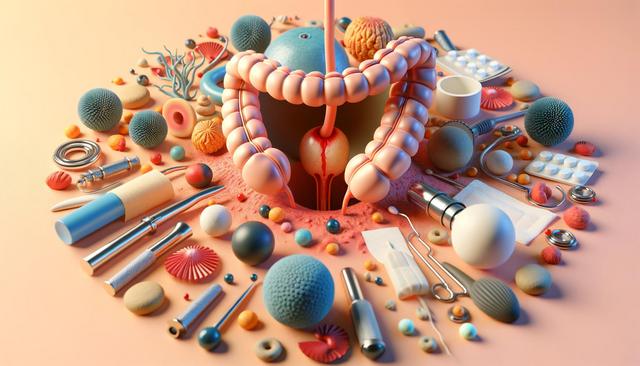Introduction to Hemorrhoids Hemorrhoids, commonly known as piles, are swollen veins located around the anus or in the lower rectum.
They can be uncomfortable and sometimes painful, affecting a significant portion of the population at some point in their lives. Understanding hemorrhoids is crucial as they can impact daily activities and overall quality of life.

What Causes Hemorrhoid Pain?
Hemorrhoid pain typically arises from swollen blood vessels in the rectal or anal area, which can become irritated during bowel movements or from prolonged sitting. There are two main types of hemorrhoids: internal and external. Internal hemorrhoids usually cause less pain but can lead to bleeding, while external ones may be more painful and sensitive to touch. Factors contributing to the development of hemorrhoids include chronic constipation, straining during bowel movements, pregnancy, and a sedentary lifestyle. Understanding these causes can help individuals take preventive measures before the pain becomes unmanageable.
Common symptoms of hemorrhoid pain include itching, burning, swelling, and noticeable lumps near the anus. In some cases, bleeding may occur, especially after using the toilet. These symptoms can interfere with daily tasks and cause significant discomfort. It’s important to recognize that early intervention with proper care and lifestyle changes can reduce the likelihood of worsening symptoms and the need for more intensive treatments like hemorrhoid surgery near me.
Available Options for Hemorrhoid Pain Relief
There are various methods to address hemorrhoid pain, ranging from at-home treatments to clinical procedures. Many individuals start with over-the-counter solutions to ease discomfort. Hemorrhoid medication relief often comes in the form of creams, ointments, or suppositories that contain ingredients to reduce inflammation and numb the area.
Home remedies that support hemorrhoid pain relief include:
- Soaking in warm sitz baths for 10–15 minutes
- Applying cold compresses to reduce swelling
- Using moist towelettes instead of dry toilet paper
- Maintaining a high-fiber diet to prevent constipation
While these approaches work for many, persistent or severe cases may require medical consultation. For those exploring longer-term solutions, options like painless hemorrhoid treatment are becoming more widely available, offering relief with minimal discomfort and downtime.
When to Consider Medical Intervention
If hemorrhoid symptoms persist despite conservative treatment, it may be time to consult a healthcare provider. Signs that indicate a need for medical attention include persistent bleeding, intense pain, or a lump that doesn’t go away. Providers may recommend more advanced treatments such as rubber band ligation, sclerotherapy, or infrared coagulation. These procedures are generally quick and performed in outpatient settings.
For chronic or severe cases, surgical options may be necessary. Searching for hemorrhoid surgery near me can help patients locate specialized care in their area. Surgery is typically considered when other treatments fail or when large external hemorrhoids cause significant pain. The decision should always be made in consultation with a healthcare professional who can assess the severity and recommend the most appropriate course of action.
Benefits of Modern Hemorrhoid Treatments
Medical advancements have led to the development of more efficient and less invasive treatments for hemorrhoids. Painless hemorrhoid treatment options are now available that minimize discomfort and allow for quicker recovery times. These include laser therapy, Doppler-guided hemorrhoid artery ligation, and stapled hemorrhoidopexy. Each of these techniques aims to reduce symptoms without the extended recovery periods associated with traditional surgery.
Benefits of these modern treatments include:
- Shorter procedure times
- Reduced post-operative pain
- Minimal disruption to daily life
- Lower risk of complications
It’s essential to discuss these options with a qualified healthcare provider to determine which approach aligns best with your needs. In many cases, individuals find that combining medical treatment with lifestyle changes leads to the most effective long-term hemorrhoid pain relief.
Preventing Future Hemorrhoid Pain
Preventive strategies play a key role in managing and reducing hemorrhoid pain over the long term. One of the most effective ways to prevent recurrence is by maintaining healthy bowel habits. Avoiding straining and not delaying bowel movements can significantly reduce pressure on rectal veins. Incorporating a high-fiber diet and staying well-hydrated are also essential steps toward preventing constipation, which is a major contributor to hemorrhoids.
Additional preventive measures include:
- Engaging in regular physical activity
- Avoiding prolonged sitting, especially on hard surfaces
- Taking breaks during long periods of work or travel
- Using hemorrhoid medication relief options at the first sign of discomfort
By taking a proactive approach, individuals can manage existing symptoms and prevent future episodes. Those who have undergone treatments like hemorrhoid surgery near me or opted for painless hemorrhoid treatment should follow post-care instructions closely to maintain progress and avoid recurrence.
Conclusion
Hemorrhoid pain can be a frustrating and disruptive condition, but understanding its causes, symptoms, and treatment options empowers individuals to take control of their health. From simple home remedies to advanced medical procedures, there are many paths to effective hemorrhoid pain relief. Whether you’re beginning with over-the-counter hemorrhoid medication relief or exploring options like painless hemorrhoid treatment or hemorrhoid surgery near me, it’s important to consult with healthcare professionals to determine what’s right for you. With the right approach, managing hemorrhoid pain becomes more manageable, allowing for a better quality of life and a return to normal daily activities.